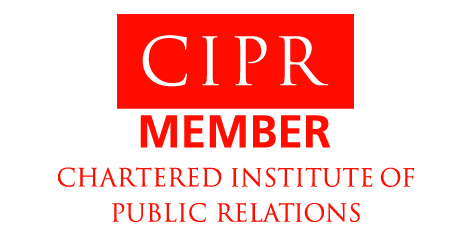I’ve worked in PR for nearly 26 years. For most of that time I studiously avoided joining the CIPR (or any other PR related membership body). Rightly or wrongly, I perceived the CIPR to be an organisation that didn’t really have much meaning for me personally or indeed properly represented the industry I worked in.
My attitude to the CIPR hit rock bottom around 2006 when an impression of lofty disdain was given out by the then leadership towards social media and digital communication (go here for a flavour of the times).
However, around 2010, things changed. The arrival of Jay O’Connor as President in that year seemed to signal a sea change in attitude. Initiatives like the CIPR Social Media panel were indicative that there was a far higher degree of relevance of the organisation to the wider world.
Since then, I have become a fully paid up member and have become much more actively involved in the organisation. The CIPR today appears to bear no resemblance to the body that I viewed as an irrelevance in the past.
So what has this got to do with the current CIPR Presidential election?
Well, a lot.
The person who takes over the presidency in January 2014 will be assuming the position at a significant inflexion point in the development of the PR industry.
Quite simply, if there is to continue to be such a thing as a PR sector, then it’s main trade body has to also justify its existence in terms of leadership, vision, meaning and value.
The CIPR President should have a key role in leading and representing PR professionals to the world. One of the key challenges for anyone coming into this role is that I believe there are many PR practitioners who hold a view of the organisation similar to the one I held in 2006 – namely, they can’t see the value of being a member – or that the body doesn’t properly represent the PR sector as a whole.
If the CIPR is to continue to have meaning and relevance then it must also seek to bring in more of these unrepresented practitioners.
So what does this mean in of terms of the two candidates – Stephen Waddington and Jon White?
Both are worthy of the job. Both have excellent credentials. Both have put forward good cases so far.
But on balance, I have to say it is Stephen Waddington who (for me) would be the best candidate to represent the CIPR given the context above. Someone who will continue to keep the rapid momentum going behind the CIPR that has only really developed in the last 3 years.
If you are a CIPR member, then clearly I think you have a duty to examine the arguments of both candidates – and to vote.
But also, even if you are not a CIPR member, seriously consider joining now and have a real say in this election.
Even if you aren’t a member, you almost certainly know someone who is. Why not quiz them on their views of the election – and encourage them to vote. That way at least you have a proxy input to the process.
In summary, I don’t think it is an exaggeration to say that this is a pivotal election – both for members and non-members of the CIPR.
The winner of this election will not only play a big role in determining the future of the CIPR, but will also be a bell weather indicator of how the PR sector is likely to go over the next several years.
Voting begins on May 7th and closes on May 21st.
If you have the power to vote, then you should exercise it. And think about the implications for the future of PR when considering who you cast that vote for. There is a lot at stake.

